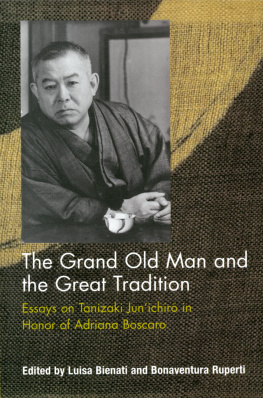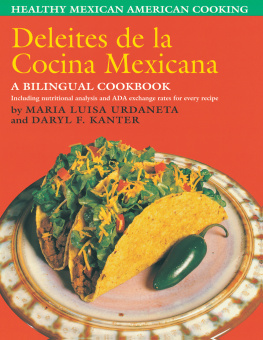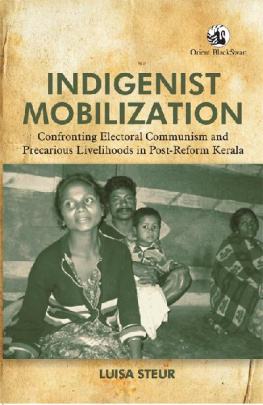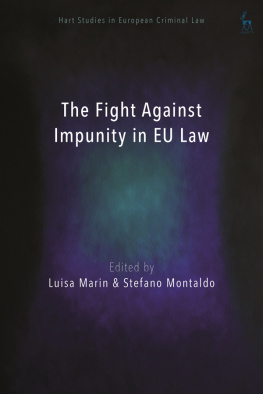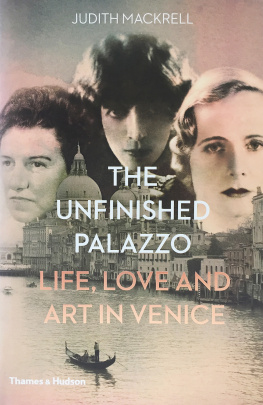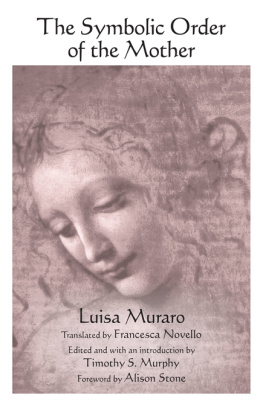Luisa Bienati - The Grand Old Man and the Great Tradition
Here you can read online Luisa Bienati - The Grand Old Man and the Great Tradition full text of the book (entire story) in english for free. Download pdf and epub, get meaning, cover and reviews about this ebook. year: 2020, publisher: University of Michigan Center for Japanese Studies, genre: Art. Description of the work, (preface) as well as reviews are available. Best literature library LitArk.com created for fans of good reading and offers a wide selection of genres:
Romance novel
Science fiction
Adventure
Detective
Science
History
Home and family
Prose
Art
Politics
Computer
Non-fiction
Religion
Business
Children
Humor
Choose a favorite category and find really read worthwhile books. Enjoy immersion in the world of imagination, feel the emotions of the characters or learn something new for yourself, make an fascinating discovery.
- Book:The Grand Old Man and the Great Tradition
- Author:
- Publisher:University of Michigan Center for Japanese Studies
- Genre:
- Year:2020
- Rating:5 / 5
- Favourites:Add to favourites
- Your mark:
- 100
- 1
- 2
- 3
- 4
- 5
The Grand Old Man and the Great Tradition: summary, description and annotation
We offer to read an annotation, description, summary or preface (depends on what the author of the book "The Grand Old Man and the Great Tradition" wrote himself). If you haven't found the necessary information about the book — write in the comments, we will try to find it.
The Grand Old Man and the Great Tradition — read online for free the complete book (whole text) full work
Below is the text of the book, divided by pages. System saving the place of the last page read, allows you to conveniently read the book "The Grand Old Man and the Great Tradition" online for free, without having to search again every time where you left off. Put a bookmark, and you can go to the page where you finished reading at any time.
Font size:
Interval:
Bookmark:
- The Tanizaki Genji: Inception, Process,
and Afterthoughts Ibuki Kazuko and G. G. Rowley

The Grand Old Man and the Great Tradition
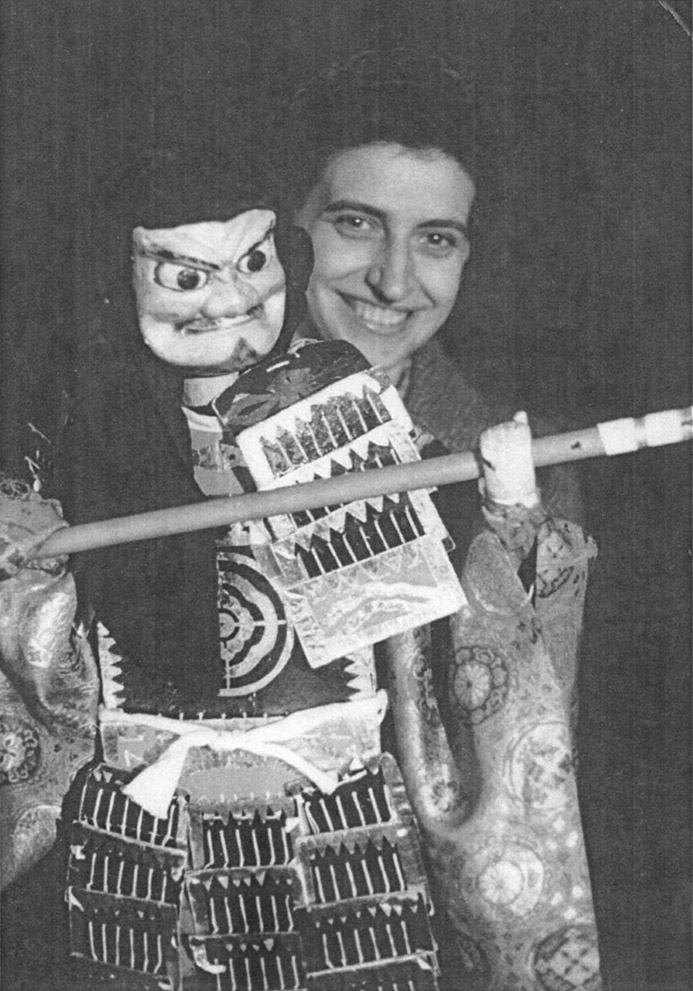
Adriana Boscaro with a Bun ya ningyo, Island of Sado, 1971.
The Grand Old Man and the Great Tradition
Essays on Tanizaki Junichir in Honor of Adriana Boscaro
EDITED BY
LUISA BIENATI AND BONAVENTURA RUPERTI
CENTER FOR JAPANESE STUDIES
THE UNIVERSITY OF MICHIGAN
ANN ARBOR 2009
Open access edition funded by the National Endowment for the Humanities/Andrew W. Mellon Foundation Humanities Open Book Program.
Copyright 2009 by The Regents of the University of Michigan
On Translating The Tale of Genji into Modern Japanese (1938) and Some Malicious Remarks (1965) Copyright Chuokoron-Shinsha, Inc.
Published by the Center for Japanese Studies,
The University of Michigan
1007 E. Huron St.
Ann Arbor, MI 48104-1690
Library of Congress Cataloging-in-Publication Data
The grand old man and the great tradition : essays on Tanizaki Jun'ichiro in honor of Adriana Boscaro / edited by Luisa Bienati and Bonaventura Ruperti.
p. cm.
Includes bibliographical references.
ISBN 978-1-929280-55-1 (pbk.: alk. paper)
1. Tanizaki, Jun'ichiro, 1886-1965Criticism and interpretation. I. Boscaro, Adriana. II. Bienati, Luisa. III. Ruperti, Bonaventura, 1959- IV. Title.
PL839.A7Z626 2010
895.6*344dc22
2009041181
This book was set in Times New Roman.
Kanji set in Hiragino Mincho Pro W3.
This publication meets the ANSI /NISO Standards for Permanence of Paper for Publications and Documents in Libraries and Archives (Z39.481992).
Printed in the United States of America
ISBN 978-1-929280-55-1 (paper)
ISBN 978-0-472-12766-5 (ebook)
ISBN 978-0-472-90161-6 (open access)
The text of this book is licensed under a Creative Commons Attribution-NonCommercial-NoDerivatives 4.0 International License: https://creativecommons.org/licenses/by-nc-nd/4.0/
Contents
Special thanks to the contributors to the festschrift, for their papers and for their friendship. Since this book has evolved over a number of years, it is impossibile for us to name all those who have encouraged our efforts and given suggestions concerning the present work. Those we do not mention by name can, however, be assured of our heartfelt gratitude.
We are grateful to Aileen Gatten, who supported us from the beginning of this project. We would also like to thank Gaye Rowley and Thomas Harper for their help and useful comments along the way. Finally, we would like to express our gratitude to Bruce Willoughby, Executive Editor of the Center for Japanese Studies at the University of Michigan, for his support of this project, as well as to Victoria R. M. Scott, the copy editor of the book.
Luisa Bienati and Bonaventura Ruperti
Venice, April 2009
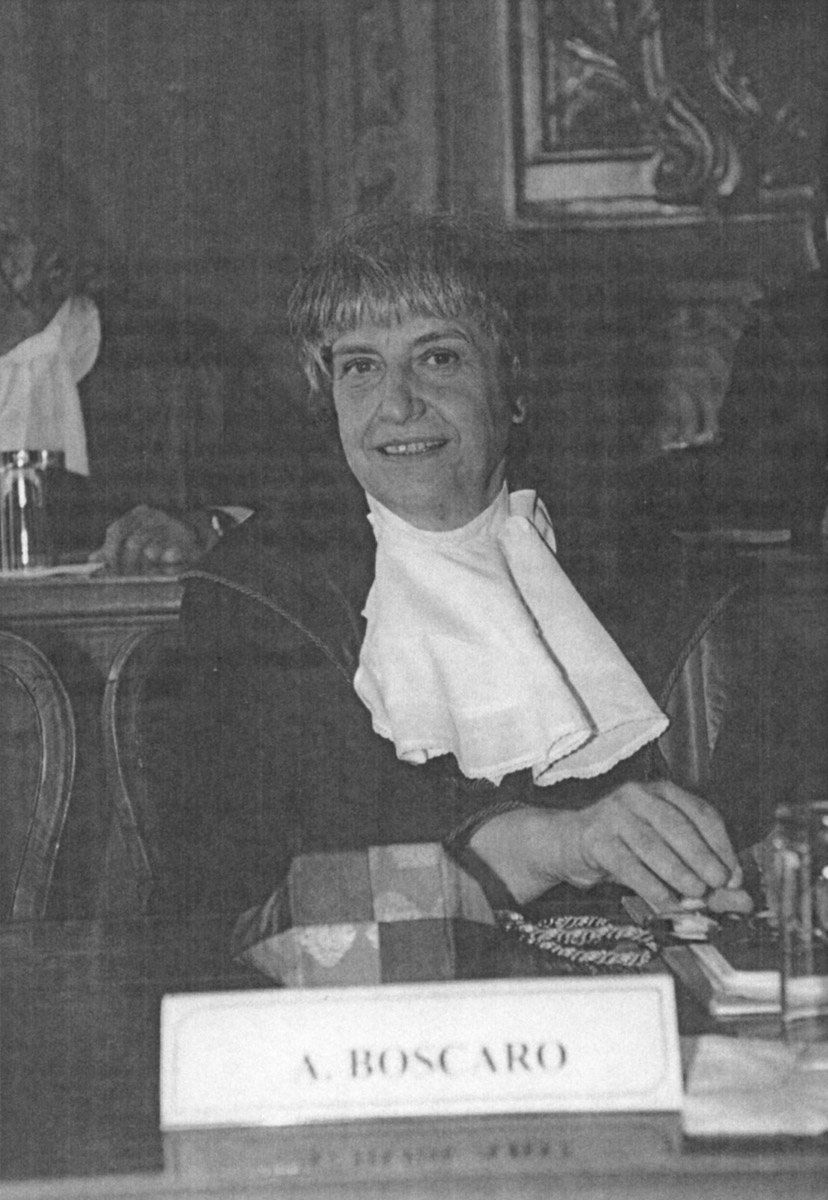
Adriana Boscaro, Laurea honoris causa to Professor Kato Sh?ichi, University CaFoscari of Venice, 9 June 2000.
Adriana Boscaro and Tanizaki Junichirb: two names firmly linked in my mind and in those of many others who feel connected to Boscaro either on a personal level or through a shared devotion to the work of Tanizaki. This book is primarily conceived as an homage to both the work of the grand old man, in all its inexhaustible richness, and to Boscaros tireless contributions to the study of Tanizaki in Italy and around the world.
Recently, while in Tokyo, I was struck by the enduring impact of the international conference Boscaro organized in Venice in 1995 on the joint thirtieth anniversary of Tanizakis death and of the found ing of the Japanese Studies Institute at the University of Venice. This important event, which attracted scholars from all over the world, offered the chance to discuss Tanizaki and exchange ideas in this beautiful venue, Boscaros favorite city. Thanks to Boscaros energetic commitment, Venice became a center for Tanizaki studies that produced two volumes based on the conference proceedings. These two volumes are now cited in all scholarly works on Tanizaki, and are regarded as seminal publications in the field.
While the Venice Conference is the best-known link between Boscaro and Tanizaki, she had already contributed actively to Tanizakis literary success in Italy. In the early 1980s, when Tanizakis later works were already well known in Italy thanks to Suga Atsukos translations, Boscaro was among those who exposed Italian readers to Tanizakis earlier writings with translations of Shisei, Majutsushi, Hkan, Himitsu, and Ningyo no nageki. In that same period, Boscaro edited the first major collection of Tanizakis writings in Italiansixteen works covering the entire span of the authors career, published in a series devoted to world classicsand contributed six translations to it.
The years that followed the Venice Conference produced an abundance of works by Boscaro and her students. Boscaros translation of Yoshino kuzu was published in 1998 as part of the Mille gru (Thousand Cranes) series on Japanese literature, a series which Boscaro supervised for the publishing house Marsilio. Her contribution to Tanizaki studies took the form of a variety of publications aimed at both academic and general readers (see the Bibliography at the end of this volume). Now retired from full-time teaching, Boscaro continues to be an active participant at conferences and other academic events.
The present volume is intended to link the two namesAdriana Boscaro and Tanizaki Junichirthrough the contributions of colleagues and friends, each of whom provides a unique perspective from his or her field of interest.
A central theme of many of the essays presented in this volume is Tanizakis position in relation to the great tradition of Japanese classical literature. It is significant that most contributors have chosen to discuss the classical aspects and themes found in the writing of Tanizaki, as if to confirm the authors classical place within the spectrum of Japanese literature.
The volume opens with an homage paid by Edward Seidensticker (1921-2007) to Adriana Boscaro. In sending me his article some years ago, Seidensticker expressly stated that 1 was not to remove its closing sentences. 1 would like to quote this passage here as an authoritative reminder of Boscaros position in the world of international scholarship:
Approaching the end of my say, I wish to change the subject and offer a few words of thanks to and for Adriana Boscaro. Energetic, intelligent, imaginative, she has been an enriching presence. She is genuinely cosmopolitan. Scholars on the European continent and scholars in the Englishspeaking countries tend not to pay much attention to other factions. This has not been true of Boscaro. She has always seemed interested in what we are doing. I have been very grateful, and 1 am glad that her retirement does not mean her disappearance from the scene.
Seidenstickers contribution is a provocative essay on literary styles and translation. He begins by describing his perspective on Tanizaki as somewhat negative, but concludes that it is outrageously subjective, for the most important literary judgments are intuitive. An important point raised here is that Murasaki Shikibu and Tanizaki Junichir are not closely akin as is commonly held to be the case. Seidenstickers argument is based on the language and literary style of Tanizaki, who produced three modern Japanese versions of the classic masterpiece by Murasaki Shikibu (1939-41; 1951-54; 1964-65). Tanizaki, Seidensticker argues, proved incapable of re-creating the same sense of lyric beauty in his own writing. Moreover, he suggests, admiration for Tanizakis attempt to modernize
Next pageFont size:
Interval:
Bookmark:
Similar books «The Grand Old Man and the Great Tradition»
Look at similar books to The Grand Old Man and the Great Tradition. We have selected literature similar in name and meaning in the hope of providing readers with more options to find new, interesting, not yet read works.
Discussion, reviews of the book The Grand Old Man and the Great Tradition and just readers' own opinions. Leave your comments, write what you think about the work, its meaning or the main characters. Specify what exactly you liked and what you didn't like, and why you think so.

